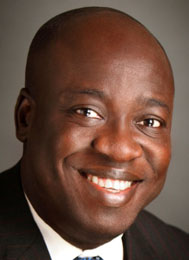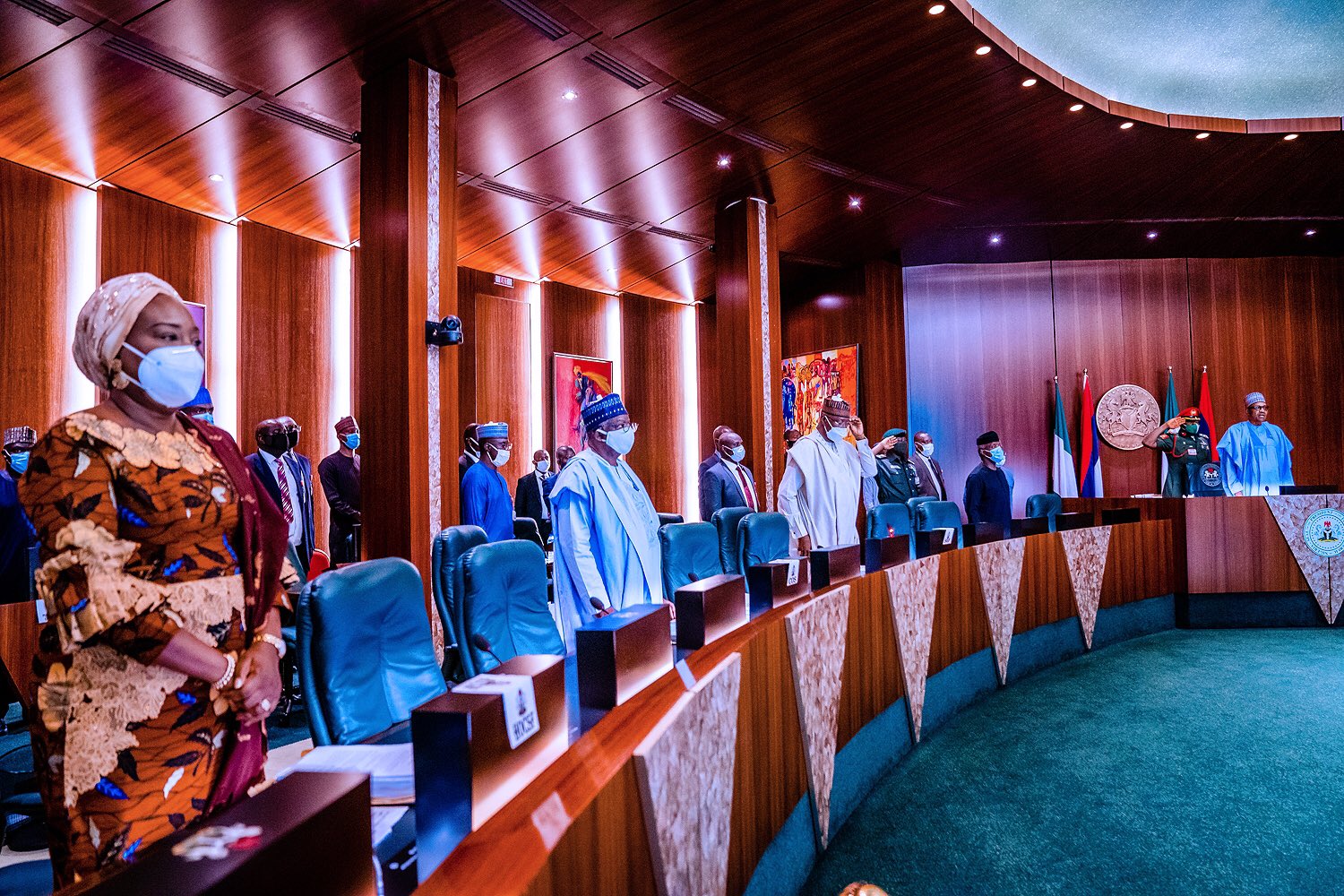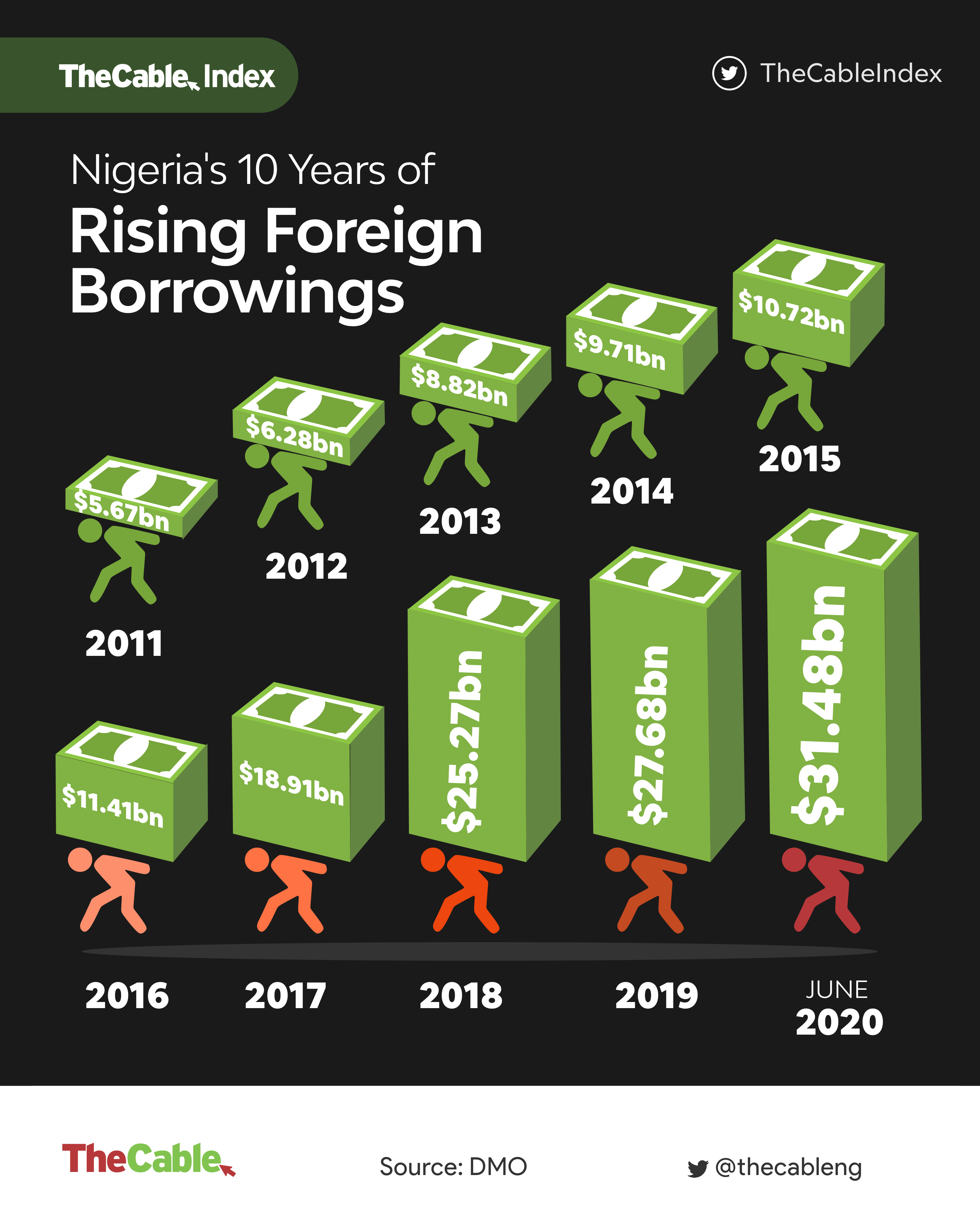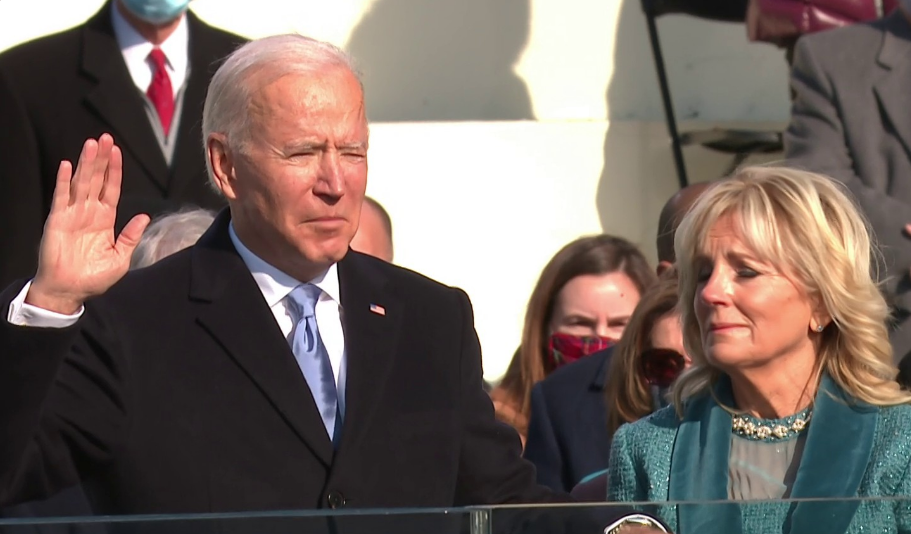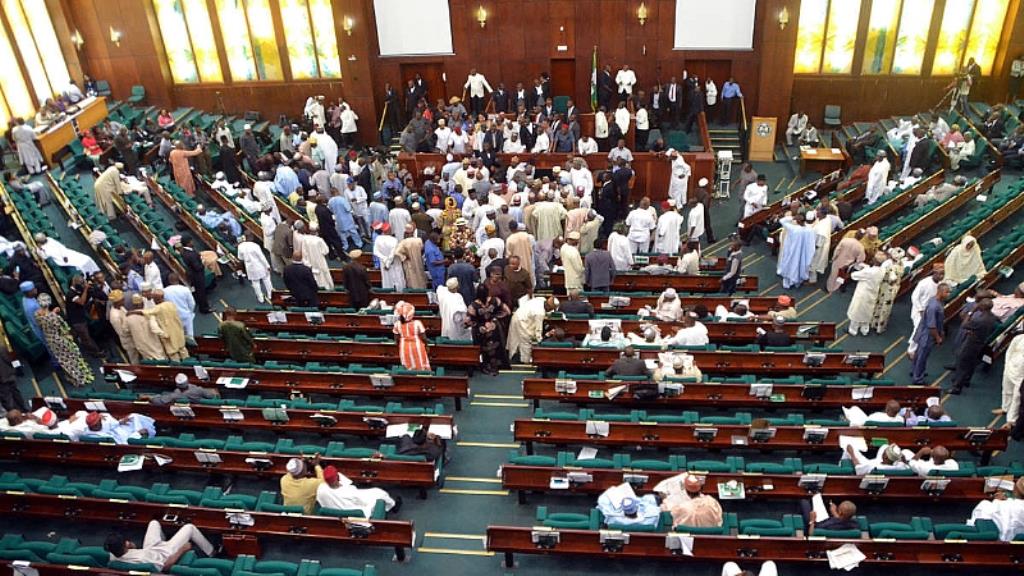On New Year’s Day of 2012, Nigerians woke up to the news that the Federal Government had removed the subsidy on petrol. The pump price per litre immediately jumped from N65 to N141, an increase of 117%.
A few months earlier, an astronomical rise in subsidy payments had sparked controversy across the country. The sum of N240 billion was provided for subsidy payments in the 2011 budget; but by October of that year, N1.3 trillion had already been paid out. Naturally, this affected remittances into the federations account, and monthly allocations to states began to drop. In protest, the states rejected the reduced allocations. Before long, many states started to default on salary payments. This was the situation as people went into the Christmas and New Year holidays.
Burdened by the increasingly unmanageable subsidy payments, the Federal Government thought the best option was to cancel the subsidy altogether and deregulate the downstream sub-sector for premium motor spirit (PMS).
Viewed strictly from a policy point of view, the decision of the government would be considered as the most rational under the circumstance. Subsidy payments have fuelled corruption and largely benefitted the multiple car-owning elites. More importantly, resources freed from subsidy payments could be re-invested in health, education, and public transport to the benefit of the majority.
Advertisement
However, despite these apparently sound technical arguments, the nation went up in flames as protests against the removal of subsidy raged across the country, provoking questions about government corruption and overall bad governance. Within days of the protest, President Goodluck Jonathan’s political fortune took a dramatic turn for the worse as otherwise adoring youths accused him of betrayal and lampooned him on social media. Seeing how the newly formed coalition of opposition parties was cashing in on the public angst, the government had to beat an undignified retreat. But it appeared that the damage was already done. Anyone seeking to explain why President Jonathan lost his re-election bid in 2015, would most likely point at that moment in 2012 as the point of departure.
Now, fast forward to 2016. Less than one year after they took office, the new government of President Muhammadu Buhari announced the removal subsidy, citing the exact reasons given by its predecessors. But the action barely attracted more than isolated grumblings here and there and President Buhari went ahead to win again in 2019 for another term. In case the people harboured any doubts about their resolve, the Buhari government reiterated in September 2020 that there was no going back on the removal of subsidy on petrol. If anything, Nigerians should actually prepare to pay more for electricity as well. Yet again, there was hardly any protest worthy of note from any quarters.
Perhaps, no other issue will better illustrate the nexus between policy and politics than the story of fuel subsidy removal under the two successive governments. The issue of subsidy removal has been historically problematic in Nigeria. Confronted with public anger, even military administrations have had to make a U-turn on the removal of fuel subsidy. But why was the Jonathan government punished for removing subsidy and the Buhari government got away with it? Attempt to answer this question should lead us towards a better appreciation of the role that politics play, not only in shaping public policy but in defining its outcomes.
Advertisement
After years of fighting to keep politics out, even the most science-minded policy institutions have now warmed up to the idea that politics do place a central role in shaping public policy. However, it does appear that despite this growing recognition, politics is still largely viewed as the stumbling block in the policy arena. In other words, where politics is deemed relevant to policymaking at all, it is more often than not considered as “the problem” in explaining why policies fail and why too many governments appear not to be getting things done. This traditional notion of politics as the problem has been quite prevalent in the policy domain. While not altogether useless, it has not been very useful in helping us to understand why things get done in spite of politics. Seeing politics as the enemy has, therefore, offered very limited insight into the political contexts in which things actually get done, or into the behaviour of successful policy actors in the political arena.
Due to the prevailing prejudice against politics, policy scientists appear to have done a better job of explaining why policies fail due to “politicisation” or “lack of political will”, than in offering concrete insights into the activities of successful policy actors on the front-line. The framing of politics as an organic policy problem has essentially promoted the erroneous belief that policy actors must insulate themselves from politics and politicians in order to maintain their cold-blooded objectivity in their role as analysts and advisers.
The notion that policy can only work in an environment devoid of politics has therefore bred generations of policy actors in government commonly known as “technocrats”. These are experts who appear to skirt the edges of government in Personal Protective Equipment to avoid being contaminated by politics, while still believing that they can somehow get things done without directly engaging with and seeing things like those who hold real political power do.
Government, by its very nature, is a product of politics. People need political power in order to solve problems. They need to hold on to power long enough to be able to solve those problems they have identified. Holding onto power often requires constant bargaining and even compromises. This sounds like a conundrum, but it is this very conundrum that makes politics inescapable as a critical success factor for policymaking.
Advertisement
Following Grindle and Thomas (1991), Grindle (2004), Stone (2012), and Hickey and Hossain (2019), I will argue that politics, even in its broadest scope, is a sine qua non for the success of any public policy. How an issue gets into and gets promoted to the top of government agenda; which alternatives are considered; which funds get allocated and; what kind of coalitions are built around implementation, are all functions of politics and depend largely on its nature and the specific context in which policies are introduced.
Accordingly, the success of any public policy will depend largely on the quality of authorisations that the policy actor is able to obtain through various levels of interactions and negotiations with an array of interested “stakeholders” across political establishments, government bureaucracy, unions, the media, and the civil society. Getting things done in government will therefore require us to bring politics to the centre of policy planning. It is in spite of politics that policies succeed not by avoidance of it.
Attempts to draw an imaginary line between the politician and the technocrat flows from the faulty assumption that only one of them is interested in getting things done, while the other just wants to hold on to power. The reality however is that politicians do have a development perspective, and they also want to get things done. The key difference is that a politician’s theory of change derives from a different evaluative framework. Essentially, a politician is guided by two important questions, both of which are also quite rational: If I do it, will it help my electoral fortune? If I don’t do it, will it hurt my electoral fortunes? Policy entrepreneurs would stand a better chance if they pay more attention to these questions.
Stone (2012) reported her encounter with what she called the “rationality project”, described as efforts to develop policymaking into a science, relying strictly on rational, analytical and scientific methods. Under the rationality project, politics is viewed as an “unfortunate obstacle to clear-headed, rational analysis and good policy,” she said. Therefore, according to the rationality school of thought, politics needs to be completely taken out of the equation of policymaking in order to bring to reality, Harold Lasswell’s dream of a “science of policy forming and execution.”
Advertisement
In the dream world of policy scientists, policy-making operates on a series of systematic steps, which if followed accordingly, will lead to optimal outcomes – define the problem, assemble some evidence, construct alternatives, select criteria, project outcomes, confront trade-offs etc. and you will have a good story to tell (Bardach and Patashnik, 2016).
I find that these technical prescriptions on how to do governance are quite useful; but it is like the flying manual in a simulator, which offers very little help when you are confronted with emergencies at 40,000 feet ASL. Politics is the trouble that policy goes looking for. But surviving in the face of this trouble is the only true test of a good policy. I liken this to a honey badger raised in a beautiful cage in a backyard. It would look good, but a honey badger is not meant to live in a cage. The jungle may be fraught with unspeakable dangers, but that is the honey badger’s natural habitat; which is governed by a different set of rules that it can begin to understand only when she is released into the wilderness. These laws may appear irrational and even unjust, but the badger’s survival would depend on its ability to master these laws and adapt accordingly.
Advertisement
Like Stone asked, “If you take politics out of governance, what exactly do you have left?” The challenge posed by this rhetorical question is that rather than seek to insulate policy from politics, we should rather focus more on how to inoculate policy from the debilitating effects of political pathogens.
In her bid to achieve the goal of education for all, Nigeria launched the Universal Basic Education (UBE) in 1999. Accordingly, the UBE Commission was established to drive the goal of a universal, free and compulsory basic education and to award grants to the states and local governments to build more classrooms, buy learning equipment and hire more teachers from 2% of the national consolidated revenue.
Advertisement
More than two decades after the UBE was launched, Nigeria is still reported to have the highest number of children out of school. However, if we focus on this grim report alone, we may lose sight of the fact that since the UBE was launched, Nigeria has brought more children to school than she has done at any other time in her history. We have also spent more money on education in the last 20 years than we have ever done in the past.
Nevertheless, we have since realised that it is one thing to get children into school; it is another thing to give them education. Like Pritchett (2013) noted, “schooling ain’t learning.” We may have succeeded in bringing more children to school, but the majority of these children are completing basic education, not able to read, write or do basic arithmetic at a level commensurate to their age or years of schooling. The knock-on effect is that these children enter secondary school with great deficiencies in basic cognitive skills and are therefore unprepared for future learning.
Advertisement
This problem is however not peculiar to Nigeria. It appears that wherever mass education has been introduced, quality is often the first casualty. This is also because, like many scholars have found, the process of bringing every child to school naturally generates a great deal of incentives, which ironically becomes the very stumbling blocks to maintaining standards and improving the quality of learning.
The mass education industry is very lucrative indeed. As classrooms get built, equipment procured, and teachers hired, the business of teaching and learning become relegated to the back of the education agenda as the sector transforms into a fertile ground for patronage and rent-seeking. These perverse incentives are the reasons that any attempt to improve the quality of education becomes more of a political challenge than a policy undertaking.
Unlike the effort to improve access, addressing the issue of quality would require a great deal of behaviour adjustments from a whole range of actors connected to the sector, directly or indirectly. This type of adjustment hardly comes without a cost. Therefore, governments across the world have found it easier to continue with the less contentious policy of expanding access, which is more lucrative and less controversial.
Reform literatures are quite clear about how politically contentious education reforms could be. Looking at Grindle’s study of education reform in Latin America (2004); the cases of Ghana, South Africa, Bangladesh, Cambodia (Hickey and Hossain, 2019); or those of Pakistan and India (Pritchett, 2013); the consensus appears to be that most of what constitute barriers or risks to education quality reforms are, in fact, exogenous to the education sector itself. Therefore, whether or not the political elite would be willing to undertake the necessary reforms often depends on a constellation of factors relating to their own political survival. As Kosack (2009) noted in respect of Ghana, the sector “needs to be understood not simply in a technical sense, but as a domain of resource allocation that can play a political as well as a developmental function with regards to maintaining the legitimacy and longevity of the ruling coalition.”
Following the growing concern about the declining quality of public education in Nigeria, the World Bank launched the State Education Sector Support Project (SESP), which focussed mainly on teacher re-training and issues of accountability in education. The DFID also introduced the Education Sector Support Programme in Nigeria (ESSPIN) in 2007/2008, which over seven and half years sought to deliver what they called “integrated school improvement programme.”
From my engagement with these two programmes over a four-year period, two things were clear to me. One is that most of the experts that were brought in to offer technical assistance to us had never encountered anything close to what we were dealing with. More importantly, they had never witnessed a single case, where an education system moved from the level that were to the level they believed we could get to if we followed the technical advice that they were giving us. The second thing I noticed was that their biggest challenge was how to gain access to the right level of decision-making in government and find people who would “own” the initiatives and bring quality education reform to be part of the political agenda.
While the two programmes lasted, their sponsors would have gathered considerable experience about what worked and what did not in the various states that they had operated. However, if they also ask questions related to value for money, I am certain that they would not have been too happy.
By the accounts of ESSPIN in particular, Kwara appeared to have been their best success story. I believe that this was not because they did anything in Kwara that they did not plan to do in other states, but because they met on ground in Kwara, policy actors who were integral to the state’s political structure and were willing to undertake the reform. Quite significantly, these policy actors also knew how to align the reform ideas to the exigencies of local politics and were credible enough to obtain the required authorisations to take on a wide range of vested interests. This is consistent with the views expressed by Grindle and Thomas (1991), who argue that values, experiences, and perceptions of policy elites and the historical, political and institutional context within which they operate is essential to understanding specific instances of reform and how it becomes a part of the policy agenda.
One key component of our education reform was the Teacher Quality Improvement(TQI). Part of the plan was to make the teachers take a test based on primary four curriculums to enable us establish the baseline for the proposed training programme. Anyone who understands the role that teachers could play in determining the electoral fortunes of any administration would know that this was a very dangerous undertaking indeed. Some other states have attempted to carry out this same exercise since we did ours in 2008, in the process some of the governors have met with their political waterloo.
If we are to isolate some factors that made Kwara relatively successful in its education reform, I should be able to identify the following factors, which as we shall see, were more closely related to issues of politics than the policy strategies themselves:
- The government was stable. We were not only in our second term, but our political party was so dominant that there was hardly any opposition to speak of. Therefore, we did not have to worry too much about losing the next election.
- We found a “scape goat”, whose case helped to escalate the problem to the level of crisis. Understanding the situation as a crisis made it relatively easy to obtain the required authorisations and the buy-in of critical stakeholders in the political community.
- We engaged closely with the union leaders. The decision to write the test, just like with other aspects of the reform, was an outcome of weeks of negotiation, which also required us to make some important compromises without losing focus of our overall objectives.
- We knew that education reform required a long-term strategy, but we also realised that we needed to deliver some quick gains that everyone could see. By tackling teacher absenteeism, student loitering and examination malpractices, we were able to create the feeling of progress even though these were not part of the reform objectives. The peculiar nature of education reform is that while it generates instant losses, the real gains always lie in the future that even the beneficiaries may not be able to visualise. Therefore, giving people something to cheer about helped to sustain their interests as we proceeded on the long journey.
- We found creative ways to keep the patronage system alive without necessarily sacrificing the goals of the reform.
- On the knotty issue of teacher assessment, it helped considerably that the test itself was seen as part of the wider sector reform, rather than an isolated activity. Because we had widely communicated the Learning Outcome Benchmarks, the test was easily seen as a part of the process towards achieving the set objectives.
- Framing is important. Edo labelled the exercise as “competency test”, this provided ammunition to the teachers to ask why the teachers were being singled out for the test of competency. A “Needs Assessment test”, as we called it, was however less judgmental and therefore less likely to be viewed with suspicion.
As I noted earlier, education institutions may not be about education at all. While a school or any other educational establishment may be going through the motion of education, in reality, they may be more important to so many people because of the jobs they create, the business they generate, the contracts they award, or the patronage they offer. If we look more closely, at other sectors, we are likely to find that this “camouflage” situation is not peculiar to the education sector. Therefore, the ability to see through mimicry would determine how we define the problem and the kind of political challenges that they present. In this context, even agreeing on a common definition of what constitutes a problem becomes politically problematic.
For example, if someone describes the problem in a health sector as that of inadequate medical equipment and too few doctors, she is obviously more interested in how people can be treated when they fall sick. The solution would simply be to buy more equipment and hire more doctors. On the other hand, if the problem is that too many people are falling sick, and we want to investigate why, then we are operating from a completely different analytical framework, which presents a more difficult problem. Then, what happens when we find that people have been falling sick because of lead poisoning, caused by the activities of miners who also contributed money to the governor’s campaign in the last election?
Good intentions are never enough. It is therefore important to note that sometimes one is confronted with situations that challenge one’s personal moral codes. The word “compromise” has acquired a negative connotation, but sometimes compromise is just what is needed to navigate a particular stumbling block on the path to achieving the greater objectives. The challenge is how to do this without getting digested. Good people have gone into government and come out bad. The risk of co-option is real.
The public policy arena is capricious like the desert features. This is why we should be wary of the so-called “best practices”. What works in a particular political context may not work in another. In a complex society like ours, it is easy for policies to get entrapped in our politics of differences. However, the ability to mainstream politics at every stage of the policy process will not only help in anticipating dysfunctionalities and unintended consequences but will also help in clarifying our assessment of risks in relation to the desired impacts.
I have tried to argue that politics must be brought to the heart of policymaking; not as a problem but as the potential pathway to the solutions that we seek. Understanding political contexts will not only help in our problem analysis but will also help in maximising the attainment of our policy objectives.
This paper was presented at the Seminar on Unbundling SEC 43: Getting Things Done: Strategies for Policy and Programme Implementation in Nigeria.
National Institute for Policy and Strategic Studies, Kuru.
January 20th, 2021.
REFERENCES
Apratwum, E. Et al. 2019. The Political Settlement and Sub-National Governance in Ghana’s Education Sector. In The Politics of Education in Developing Countries: From Schooling to Learning. Hickey, S., and Hossain, N. 2019. Oxford: Oxford University Press (page 45).
Bardach, E., Patashnik, E.M. 2016. A Practical Guide for Policy Analysis: The Eightfold Paths to More Effective Problem Solving. London: Sage Publications Inc.
Grindle, M.S. 2004. Despite the Odds: Contentious Politics of Education Reform. Princeton, NJ: Princeton University Press.
Grindle, M.S., Thomas, J.W. 1991. Public Choices and Policy Change: The Political Economy of Reform in Developing Countries. Baltimore, Maryland: John Hopkins University Press.
Hickey, S., and Hossain, N. 2019. The Politics of Education in Developing Countries: From Schooling to Learning. Oxford: Oxford University Press.
Pritchett, L. 2013. The Rebirth of Education: Schooling Ain’t Learning. Washington, DC: Centre for Global Development.
Stone, D.2012.Policy Paradox: The Art of Political Decision Making. New York: Norton & Company, Inc.
Views expressed by contributors are strictly personal and not of TheCable.
Add a comment
